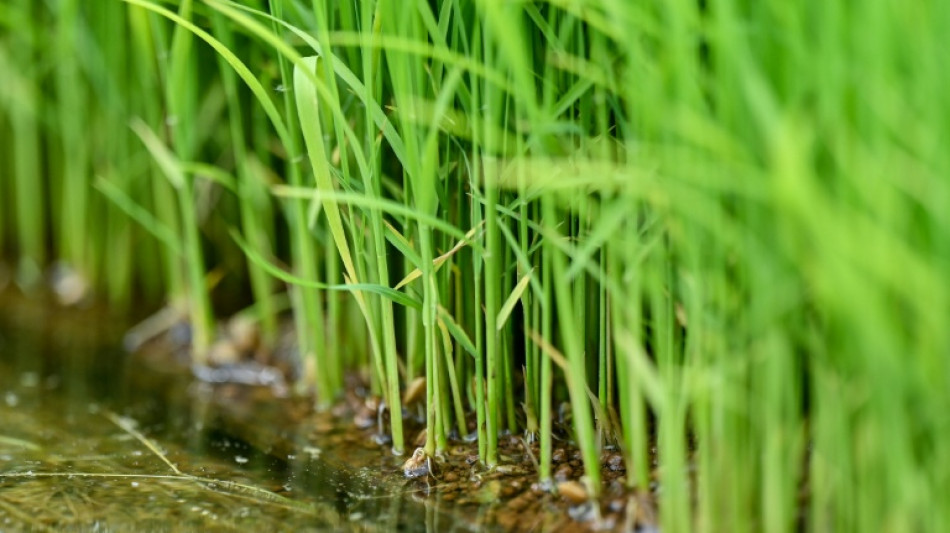
-
 Sri Lanka's Wellalage told of dad's death moments after win
Sri Lanka's Wellalage told of dad's death moments after win
-
Norris on top ahead of Piastri in opening Baku practice

-
 Terland hat-trick fires Man Utd into Women's Champions League
Terland hat-trick fires Man Utd into Women's Champions League
-
Stars Tim Burton, Monica Bellucci announce separation

-
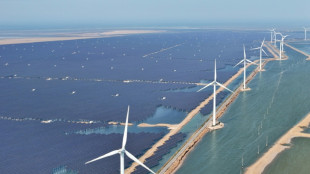 What to look for in China and Europe's climate plans
What to look for in China and Europe's climate plans
-
India target record Asian Games medal haul as LA 2028 beckons

-
 Tracing the 'Green Sahara' in Chad's northern desert
Tracing the 'Green Sahara' in Chad's northern desert
-
Asian markets mostly drop ahead of Trump-Xi talks
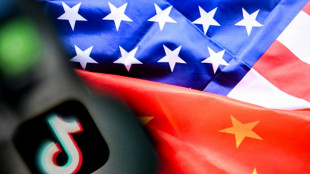
-
 US comics slam 'censorship' after Kimmel pulled
US comics slam 'censorship' after Kimmel pulled
-
China's Xiaomi to remotely fix assisted driving flaw in 110,000 SU7 cars
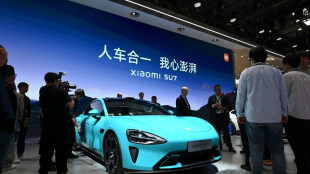
-
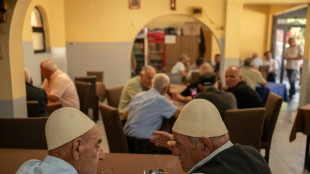 Brewing battle: coffee booms in tea-loving Kosovo
Brewing battle: coffee booms in tea-loving Kosovo
-
Dortmund on lookout for leaders as familiar cracks emerge

-
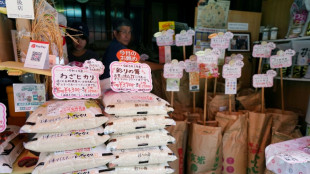 BoJ holds interest rates but to sell funds in shift from easing policy
BoJ holds interest rates but to sell funds in shift from easing policy
-
Real Madrid aiming to stay perfect against impressive Espanyol

-
 Georgia's Niniashvili aims to stay 'crazy' at new club La Rochelle
Georgia's Niniashvili aims to stay 'crazy' at new club La Rochelle
-
Latinos, ex-military, retirees -- ICE hopefuls answer Uncle Sam's call
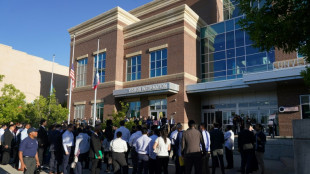
-
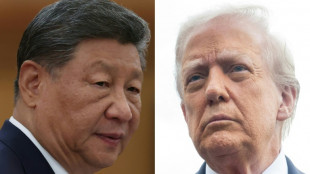 Trump hopes to settle TikTok's fate on Xi call
Trump hopes to settle TikTok's fate on Xi call
-
East Germany's empty towns try to lure people with 'trial living'

-
 Liverpool crave easy win in Merseyside derby as Arsenal seek Man City hat-trick
Liverpool crave easy win in Merseyside derby as Arsenal seek Man City hat-trick
-
Australia skipper Cummins says 'hopeful' he'll take part in Ashes

-
 China warns Papua New Guinea over Australian defence deal
China warns Papua New Guinea over Australian defence deal
-
Australian state bans testing of illicit drugs
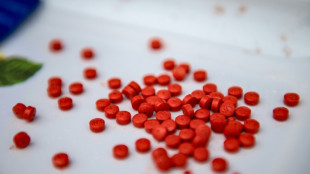
-
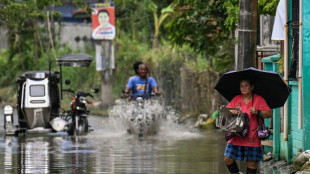 Philippines 'ghost' flood projects leave residents stranded
Philippines 'ghost' flood projects leave residents stranded
-
Asian markets fluctuate as focus turns to Trump-Xi, BoJ
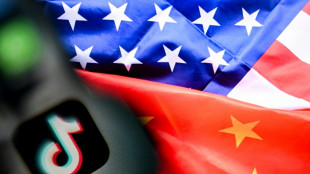
-
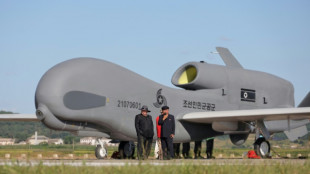 North Korea's Kim oversees drone test, orders AI development
North Korea's Kim oversees drone test, orders AI development
-
Kenya eye double gold on penultimate day of world championships

-
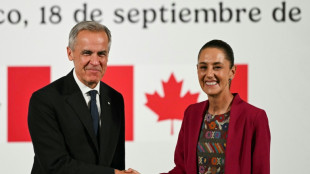 Canada, Mexico leaders agree to seek 'fairer' trade deal with US
Canada, Mexico leaders agree to seek 'fairer' trade deal with US
-
How did an Indian zoo get the world's most endangered great ape?

-
 Amid emotional retirement reveal, Kershaw focused on beating Giants
Amid emotional retirement reveal, Kershaw focused on beating Giants
-
Dodgers pitching icon Kershaw to retire after 18th MLB season

-
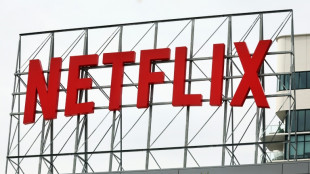 Netflix seeks 'Money Heist' successor in Spanish hub
Netflix seeks 'Money Heist' successor in Spanish hub
-
Taiwan running out of time for satellite communications, space chief tells AFP
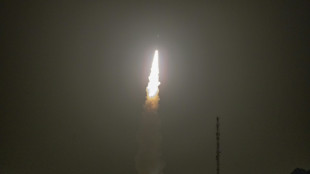
-
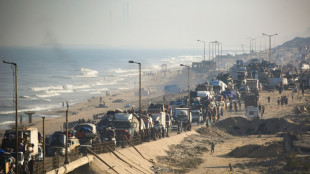 Gaza, Palestinian future to dominate UN gathering
Gaza, Palestinian future to dominate UN gathering
-
Young plaintiffs stand tall after taking on Trump climate agenda in court

-
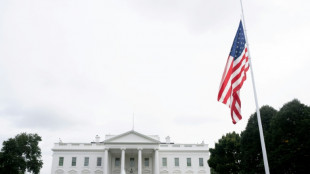 Kirk killing sparks fierce US free speech debate
Kirk killing sparks fierce US free speech debate
-
Eying bottom line, US media giants bow to Trump

-
 Indie studio bets on new game after buying freedom from Sega
Indie studio bets on new game after buying freedom from Sega
-
Marseille hoping to catch PSG at the right time in Ligue 1

-
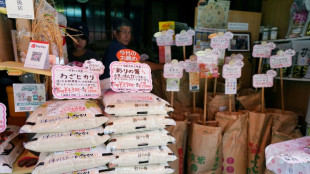 Japan inflation slows in August, rice price surges ease
Japan inflation slows in August, rice price surges ease
-
Court seizes assets of Maradona's lawyer, sisters in fraud case

-
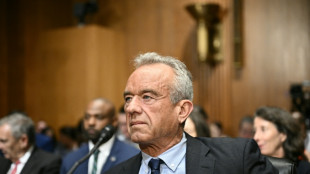 RFK Jr panelists make initial changes to childhood vaccine schedule
RFK Jr panelists make initial changes to childhood vaccine schedule
-
Progress stalled on Canada's pollution reduction goal
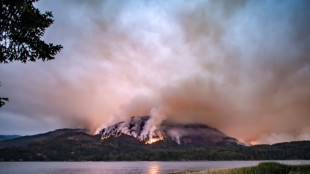
-
 UN Security Council votes on reimposing Iran nuclear sanctions
UN Security Council votes on reimposing Iran nuclear sanctions
-
Depleted France eager to 'throw sand in England's machine' in World Cup semi-final

-
 Barcelona beat Newcastle, Man City see off Napoli in Champions League
Barcelona beat Newcastle, Man City see off Napoli in Champions League
-
Texans' Ward won't face domestic violence charges

-
 Alcaraz headlines Team Europe in Laver Cup title defense
Alcaraz headlines Team Europe in Laver Cup title defense
-
Rashford bags first Barca goals to seal win at Newcastle

-
 Haaland hits 50 Champions League goals in Man City cruise over 10-man Napoli
Haaland hits 50 Champions League goals in Man City cruise over 10-man Napoli
-
Dodgers pitching icon Kershaw to retire - club


Japan's sticky problem with Trump, tariffs and rice
Donald Trump's insistence that "spoiled" Japan imports more US rice is adding to Prime Minister Shigeru Ishiba's problems ahead of elections that could sink his premiership after less than a year in office.
Japan is one of more than 20 countries receiving letters this week from the US president warning of "reciprocal" tariffs from August 1 failing a trade agreement with Washington.
The 25 percent across-the-board levy for Japan is separate from similar charges for cars, steel and aluminium that have already been imposed.
Trump wants to get Japanese firms to manufacture more in the United States and for Tokyo to buy more US goods -- notably gas and oil, cars and rice -- to reduce the $70 billion trade deficit with the Asian powerhouse.
"I have great respect for Japan, they won't take our RICE, and yet they have a massive rice shortage," Trump said on Truth Social on June 30.
Rice, though, is small fry in the grand scheme of bilateral business between the countries.
BMI Fitch Solutions said that it accounts for only 0.37 percent of US exports to Japan, and that even doubling that would have a "negligible" effect on overall trade.
"(The) Trump administration seems more concerned with the optics of striking deals than with meaningfully narrowing the US trade deficit," BMI said.
For Japan, doubling imports could be swallowed if only the economic impact is considered.
It could be well worth it if such a concession could reduce or even remove Trump's damaging 25 percent tariff on Japanese autos.
- Lost majority -
But the politics of rice are fraught for Ishiba, whose ruling coalition disastrously lost its majority in lower house elections in October.
Upper house elections on July 20 could see a similar drubbing, which might prompt Ishiba to quit, 10 months after taking the helm of the long-dominant but unloved Liberal Democratic Party (LDP).
Rice Japan holds a cherished place in Japanese national culture -- samurai reputedly used to be paid in it.
Relying on imports -- currently almost all rice consumed is grown domestically -- would be seen by many as a national humiliation for the country of 124 million people, and risky.
"Culturally, and historically, the Japanese people are all about rice," Shinichi Katayama, the fourth-generation owner of 120-year-old Tokyo rice wholesaler Sumidaya, told AFP.
"I personally welcome having an additional option for Japanese consumers. But I also feel the move (letting in lots of foreign rice) is too early from the standpoint of food security," he said.
"If we become reliant on rice imports, we may face shortages again when something happens."
While Japan already imports rice from the United States, many consumers see foreign, long-grain varieties as being of dubious quality and lacking the requisite stickiness of the homegrown short-grain rice.
Bad memories linger from when Japan suffered a cold summer in 1993 and had to import large volumes of the grain from Thailand.
American rice "tastes awful. It lacks stickiness", said Sueo Matsumoto, 69, who helps families where children have hearing difficulties.
"If they (the Americans) want to export to Japan, they must work at it. They must think about consumer preference," he told AFP in Tokyo.
- No sacrifice -
As a result, Ishiba's government has been at pains to say it won't bend on the issue -- although this may change after the election.
"We have no intention of sacrificing agriculture in future negotiations," Chief Cabinet Secretary Yoshimasa Hayashi said recently.
"Ishiba is walking a narrow plank, wary of provoking powerful domestic lobbies like rice farmers, while juggling an approval rating that would make aggressive trade moves politically perilous," said Stephen Innes at SPI Asset Management.
The government has already been under fire for the recent skyrocketing of rice prices, which have roughly doubled in 12 months.
Factors include a very hot summer in 2023, panic-buying after a warning of an imminent "megaquake" in 2024, alleged hoarding by some traders, and a surge in rice-hungry tourists.
To help ease the pain, Tokyo is tapping emergency stockpiles, and imports have risen sharply -- led by rice from California -- but these are still tiny compared with domestic production.
"All these problems with rice prices show the LDP's agriculture policy has failed," retiree Yasunari Wakasa, 77, told AFP.
L.Maurer--VB

